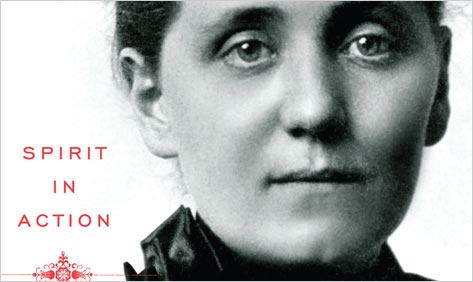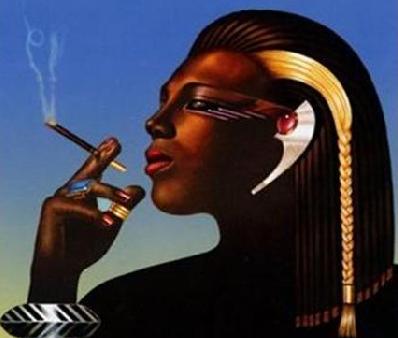|
Gay Wisdom for Daily Living brought to you by White Crane Institute ͏ ͏ ͏ ͏ ͏ ͏ ͏ ͏ ͏ ͏ ͏ ͏ ͏ ͏ ͏ ͏ ͏ ͏ ͏ ͏ ͏ ͏ ͏ ͏ ͏ ͏ ͏ ͏ ͏ ͏ ͏ ͏ ͏ ͏ ͏ ͏ ͏ ͏ ͏ ͏ ͏ ͏ ͏ ͏ ͏ ͏ ͏ ͏ ͏ ͏ ͏ ͏ ͏ ͏ ͏ ͏ ͏ ͏ ͏ ͏ ͏ ͏ ͏ ͏ ͏ ͏ ͏ ͏ ͏ ͏ ͏ ͏ ͏ ͏ ͏ ͏ ͏ ͏ ͏ ͏ ͏ ͏ ͏ ͏ ͏ ͏ ͏ ͏ ͏ ͏ ͏ ͏ ͏ ͏ ͏ ͏ ͏ ͏ ͏ ͏ ͏ ͏ ͏ ͏ ͏ ͏ ͏ ͏ ͏ ͏ ͏ ͏ ͏ ͏ ͏ ͏ ͏ ͏ ͏ ͏ ͏ ͏ ͏ ͏ ͏ ͏ ͏ ͏ ͏ ͏ ͏ ͏ ͏
|
|
||||
| This Day in Gay History | ||||
September 06Born 1860 - JANE ADDAMS, born; American social worker, recipient of the Nobel Peace Prize (d. 1935) Although she would not have used the word Lesbian, she did have lasting intimate and romantic relationships with women throughout her life. After returning from a Grand Tour of Europe, Jane resumed friendship with Ellen Gates Starr, now a teacher. A female love of Starr's had moved away and she was heartbroken. She wrote to Jane, "The first real experience I ever had in my life of any real pain in parting came with separating from her. I don't speak of it because people don't understand it. People would understand if it were a man." Soon Addams would become the object of Starr's affection. It is not clear whether Jane returned the affection. In 1889 she and co-founded Hull House in Chicago, Illinois, one of the first settlement houses in the United States. At its height, Hull House was visited each week by around two thousand people. Its facilities included a night school for adults, kindergarten classes, clubs for older children, a public kitchen, an art gallery, a coffeehouse, a gymnasium, a girls club, a swimming pool, a book bindery, a music school, a drama group, a library, and labor-related divisions. She was probably most remembered through the institution of her adult night school which set the stage for the continuing education classes offered by many community colleges today. Hull House also served as a women's sociological institution. Addams was a friend and colleague to the early members of the Chicago School of Sociology, influencing their thought through her work in applied sociology and, in 1893, co-authoring the Hull-House Maps and Papers that came to define the interests and methodologies of the School. She worked with George H. Mead on social reform issues including promoting women’s rights, ending child-labor, and the mediating during the 1910 Garment Workers’ Strike. Although academic sociologists of the time defined her work as "social work", Addams did not consider herself a social worker. The term Lesbian was coined in 1890, one year after Addams founded Hull House. Although she would not have used the term to define herself, by today's standards, Jane Addams would be a Lesbian. Mary Rozet Smith arrived at Hull House one day in 1890, the daughter of a wealthy paper manufacturer. Over the years she became Jane's devoted companion, virtually playing the role of a traditional wife: tending to her when she was ill, handling her social correspondence, making travel arrangements. Unfortunately, we will never know the full extent of Jane's relationship with Mary Smith. Toward the end of her life, Jane destroyed most of Mary's letters to her. Perhaps she was trying to cover up a sexual component of their relationship. "I miss you dreadfully and am yours 'til death," Addams wrote to Smith. Smith wrote back, "You can never know what it is to me to have had you and to have you...I feel quite a rush of emotion when I think of you." Perhaps the most challenging aspect of Addams's life and the one which won her the most notoriety was her involvement in the peace movement. Addams declared herself a pacifist and spoke out against World War I. Although she would eventually win a Nobel Peace Prize for her efforts, it was an unpopular stance to take in 1914. Addams believed women had a social responsibility to work for peace because working men would never be against war. She took on a leadership role in the Woman's Peace Party. In March 1915 Addams was invited to speak at an International Congress of Women in the Netherlands. Addams presided over the event and one participant said, "She towered above all the others and again and again when she rose to speak and when she closed the audience would stand and applaud...She led without dominating and with extraordinary parliamentary skill clarified and interpreted for the polyglot congress of women." Jane Addams won the Nobel Peace Prize in 1931. True to her cause, Jane gave all her prize money away. 1947 - SYLVESTER, American Cockette superstar and disco singing queen, born (d: 1988); A superstar, Sylvester represented the Black and Gay cultural origins of disco to mainstream America and made the success of RuPaul's possible. His body of work includes crucial contributions to the disco songbook, but his ballads proved he was a versatile stylist who brought an immediacy and depth to all material. Sylvester James was born in Los Angeles to a family that included the blues singer Joan Morgan. After moving to San Francisco, where he was one of the stars of the gender-fuck drag street troupe The Cockettes, Later in the 1970's, Sylvester put together the rock-oriented Hot Band. He began recording for the Blue Thumb label but sales were disappointing. Returning to San Francisco, he began to build up a loyal audience with his outrageous stage shows. Harvey Fuqua, one-time producer at Motown but now a scout for Fantasy Records saw Sylvester and signed him to begin work on an album. In a stroke of luck, Izora Whitehead and Martha Wash were discovered singing background vocals at a concert and Sylvester jumped at the chance to hire them. Renaming the hefty pair the Two Tons of Fun, they were an integral part of Sylvester's success, adding stage presence as well as reminders of his gospel roots. The self-titled Fantasy debut, Sylvester, dropped in 1977 without much fanfare but gained cult status via the remake of the Ashford and Simpson's "Over and Over." His greatest achievement would be Step II. As the LP was being recorded, Sylvester let Patrick Cowley, then an up and coming remixer, hear an early version of "You Make Me Feel Mighty Real." Cowley's synth overlays transformed the former ballad into a disco tour de force. The driving beat and keyboard flourishes reflected the intensity of Gay disco at its best, while Sylvester's impassioned vocals communicated the anticipation of sex. Arriving at the height of discomania, the combination proved irresistible and much to the horror of disco haters and homophobes (who were largely one and the same), he was launched into the mainstream. The accompanying video made a mockery of Fuqua's attempts to tone down his flamboyance, as Sylvester strolled around a disco in full drag. "Mighty Real" won several Billboard disco awards, establishing Sylvester in disco's pantheon. The other single from the album, "Dance (Disco Heat)," featured the Tons on lead vocals and their pure gospel was so spirited, so powerful that all Sylvester could do was come in halfway through the song with a scream that anybody familiar with the black church will recognize as the "happy shout." Despite the obvious magic he had with dance material, Sylvester never viewed himself as a disco act. You see, he really wanted to be Patti Labelle. Therefore, he announced that Stars would be his only pure disco album. A celebration of nightlife, the four tracks dared you to sit down as he and the Tons worked the hell out of "I Who Have Nothing." Although most disco acts avoided live albums, Sylvester was at his strongest on stage. Taking advantage of his exciting stage performance, the live album Living Proof was released in late 1979 to the delight of fans. Recorded at San Francisco's War Memorial Opera House, the album is a tour de force. Ranging from his disco hits to an interpretation of Billie Holliday's Lover Man, it is a powerful statement of Sylvester's talent. Sylvester began the 1980's on the Disco chart with Can't Stop Dancing, a track from Living Proof. Midway through the year, Two Tons O' Fun branched off on their own and topped the Disco chart with their first album. Late in the year Sylvester released the album, Sell My Soul. Harvey Fuqua had suggested he branch out into a wider variety of music as Disco's popularity began to fade. Recorded without Patrick Cowley, the single I Need You failed to make the Disco Top 5. By 1981, Sylvester returned to working with Patrick Cowley and contributed vocals to Cowley's Disco hit Menergy. He also contributed vocals to Herbie Hancock's top 10 Disco hit Magic Number. One of his last collaborative efforts with Patrick Cowley was Do You Wanna Funk, a Top 3 Dance hit in the fall of 1982. The album All I Need in 1983 kept Sylvester's voice prominent in dance clubs. Unfortunately, Patrick Cowley became one of the first victims of the AIDs epidemic and Sylvester's music never completely recovered. 1984's Call Me suffered from lack of strong production.
Sylvester didn't return to the Dance top 10 until 1985 with Take Me to Heaven and Sex from the album M1015. For his next album, 1987's Mutual Attraction, Sylvester finally signed with a major label, Warner Brothers. His remake of Stevie Wonder'sLiving For the City and Someone Like You were major Dance hits. The latter became his second chart-topping Dance hit. Sadly, this was to be his only full-length studio album recorded for Warner Brothers. Sylvester succumbed to AIDs in December 1988. 1967 - American feature film director, KIMBERLY PEIRCE, notable for her debut feature film, Boys Don’t Cry (1999) was born on this date. Her second feature, Stop-Loss, was released by Paramount in 2008. While at Columbia working on an idea for her thesis film about a female soldier in drag during the American Civil War, Peirce read a Village Voice article about the life and death of Brandon Teena, a transgender man from Nebraska who was brutally raped and murdered when his gender history was discovered. Switching from her original thesis project, Peirce traveled to Falls City, Nebraska where she conducted research, interviewed a number of people from the town including Lana Tisdale (Brandon's girlfriend) and Lana's mother, and attended the murder trial of the two homicide suspects. The subsequent film short she made for her thesis in 1995 was nominated by Columbia faculty for a Princess Grace Award, and received an Astrea Production Grant. After film producer Christine Vachon saw a version of the short, Vachon and Peirce began working on a feature film. In order to fund the writing and development of the feature, Peirce worked as a paralegal on the midnight shift, as a 35mm film projectionist, and received a New York Foundation for the Arts grant. With help from the Sundance Institute's Filmmakers, Writers and Producers Labs in 1997, Peirce completed the feature film in 1999. Upon its release, Boys Don’t Cry became one of the most acclaimed and talked about films of the year, opening at the Venice, Toronto and New York Film Festivals and earning many honors, including the Best Actress Oscar, Golden Globe, Independent Spirit award and many other awards for the film's star, Hilary Swank. Chloe Sevigne was nominated for a Best-Supporting Actress Oscar and Golden Globe and won the Independent Spirit Award and many other awards for her role as Lana Tisdale. The film received the International Critics prize for Best Film at both the London and Stockholm Film Festivals, the Satyajit Ray Foundation Award for Best First Feature at the London Film Festival, and was named "Best American Feature," by Janet Maslin. For her part, Peirce won honors as Best Debut Director from the National Board of Review and Best New Filmmaker from the Boston Society of Film Critics. Peirce was also a director on the Lifeline series, The L Word. | ||||
|
|8|O|8|O|8|O|8|O|8|O|8|O|8|O|8| Gay Wisdom for Daily Living from White Crane Institute "With the increasing commodification of gay news, views, and culture by powerful corporate interests, having a strong independent voice in our community is all the more important. White Crane is one of the last brave standouts in this bland new world... a triumph over the looming mediocrity of the mainstream Gay world." - Mark Thompson Exploring Gay Wisdom & Culture since 1989! |8|O|8|O|8|O|8|O|8|O|8|O|8|O|8| | ||||
|
|||||
|




